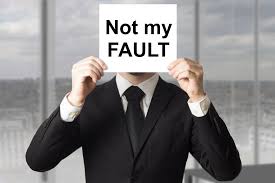We recently wrote a guide on ‘How to Open an Obrt’, after going through the process myself which turned into a bureaucratical nightmare fraught with uhljebs at every turn, I thought it only right to pen the follow-up article from a foreigner’s perspective.
Deciding to step into the world of owning your own business or acting as a freelancer should be a rewarding and empowering moment but not if Croatian bureaucracy has anything to do with it; a simple-enough process turned into a 3-month ordeal, ‘The Beautiful Croatia’ strikes again.
One of our writers – Dragana Nikšić wrote a great article about How to Open an Obrt, after reading it I understood what the process entailed but having a very basic level of speaking Croatian, I was hesitant that I could work through it all by myself.
I threw a comment out to our trusty Expat group, asking if anyone had any experience opening an obrt or could recommend someone who could help me. I received a recommendation for a lawyer from a trusted source, so I went ahead and organised a meeting.
The person I met with seemed competent and professional, he spoke about what needed to be done and it all sounded fairly painless. It would take about two weeks and I was told the process would cost 2,000 kn (€270). Unfortunately, the guy I met was busy but he would hand me over to one of his associates – this is the beginning of the story and where we take a nose-dive, right off the start line.
I met said associate, again, he seemed professional, knowledgeable and I was thankful that he drove to meet me in Omiš to personally help me file my papers. I told him my profession, that I am essentially a freelance writer/journalist and that I also edit and manage a website. He asked what else I may possibly do because when you open an obrt you can register up to 17 trades and it is better to list more so you have flexibility. I listed a few other areas I have or may work in – hospitality management, consultancy, event-planning, PR and Marketing…
We filled in the necessary documents, went to the Post Office to buy the stamp to file it (160 kn), then went to the town office in Omiš. The whole thing was done in 45-minutes (filling out the forms, coffee, stamp purchased, papers filed) and I was feeling very smug – that wasn’t so bad, what was everyone going on about?
Lesson #1: don’t ever believe anything is that simple in the beautiful Croatia

Credit: Lars Sudmann, Shutterstock: A diagram of what should be simple, but how it actually looks in Croatia.
The associate told me that they would call or I would get my papers in the mail and once that happened, I should call him to finish the remaining steps: ordering a stamp with my obrt details, Health Insurance (HZZO), Croatian Pension (HZMO) and the Tax office. Again, my level of speaking Croatian allows me to have basic conversations but dealing with anything official is WAY over my head (and intimidates the crap out of me), so I was happy to have someone to do this with me.
My papers were filed on June 30th, 2017, remember this date.
One week, two weeks, three weeks, 4 we… almost a month goes by, no word from the Associate or Registry Office before finally, I received a letter in the mail saying ‘congratulations on opening an obrt’, in my naivety, I assumed I was almost done. I tried calling the Associate, no answer. In the meantime, I set up an appointment with an accountant to find out about invoicing. I went along with my piece of paper that said ‘congratulations’ and sat down with the accountant. She asked me where my Rješenje was and it didn’t take long for me to figure out that the piece of paper in my hand meant nothing. She found me online, my obrt was indeed filed but… I wasn’t registered for anything related to what I actually do! There was nothing even close to freelance writer or journalist, which meant I couldn’t invoice for the work I do. She called the office and they said my papers were waiting to be collected (of course).
Lesson #2: Ask questions, double-check, don’t ever assume someone listened to you or that you got the correct answer the first time

I had assumed that the Associate had registered this trade as we spoke about it and I made it very clear that this was my main profession. I was wrong. Still no word from the Associate, so I decided to be brave and go down to the Registry Office, ok I didn’t go by myself, I got my father-in-law to come along for moral support and to help with the language if needed.
As my father-in-law parked the car, I went into the office by myself, optimistic that I could figure it out, after all, they said the papers were waiting to be collected, how hard could it be? Refer to lesson #1.
I walked into the office and asked the ladies politely – in Croatian – where I could collect my papers for my obrt, I also apologised for my bad Croatian.
With a deadpan expression, one of the women looked at me and said: “No, you shouldn’t be here, you need to go to Split.” I tried explaining (in my bad Croatian) that I was told my papers were here and I just needed to collect them.
“No, you need to go to Split.”
It is moments like these where I feel completely helpless. Not being able to express exactly what I need or being treated in a certain way and not being able to stand up for myself due to language barriers can be extremely overwhelming at times. *I was close to tears *
Thankfully, at that moment, my father-in-law walked in. Now, note, his English isn’t the best and he didn’t even know what I really needed to do, he was just there for support. The second he walked in the door the two women gushed – “Branko, kako si?” It seems they knew him. Before he even opened his mouth they began prattling off what I needed to do –
“She just needs to go upstairs, there is an obrt office on the 2nd floor.”
Hold the phone, back-up a minute – all of a sudden, they knew exactly what I needed AND where I needed to go and it wasn’t to Split! Imagine if I had left and gone to Split, I would have lost another day. I can’t make this up if I tried.
Lesson #3: If you are sure of something, be insistent, don’t take no for answer AND if you don’t speak the language very well, take someone with you for support.
I was furious but thanked them anyway and left my father-in-law chatting while I went upstairs. I walked into another office, frustrated but thankfully was greeted by a young woman who spoke perfect English. She asked where I had been because she had called ‘my lawyer’ and told him my papers were ready three weeks ago…
I collected my papers and since she spoke English I wanted to get as much out of this interaction as possible, I told her I was informed that I wasn’t registered for my trade which she confirmed. I asked if it was even possible to be registered as a freelancer or journalist, she confirmed it was but that I needed to fill in the papers again, pay – again, and then wait, again.
She helped me fill in the papers, I went back to the post office to buy another 160 kn stamp and then returned to the registry office with the world’s most unhelpful women, handed it in and hoped for the best.
After that, I tried calling the Associate, he didn’t answer. So, I sent a message saying I had filed the papers again because they were incorrect and I was a little disappointed with his lack of communication. He called me immediately (go figure) and proceeded to tell me that he had done everything correctly, the lady in the obrt office was wrong because I couldn’t be registered as a freelance writer… He also told me that he had been on holiday for the last month and that my case had been handed on to someone else – who was also on holiday (gotta love the ownership and responsibility) … I said it’s fine, don’t worry, I will proceed on my own. He called me back 5 minutes later because “to ease my conscience, I checked again, you can’t be registered as a freelancer, I was right.” Funny because that is exactly what we registered.
Isn’t it amazing that I didn’t hear from him for over a month, even when he was phoned to say my papers were ready and yet now, when I questioned his performance he had the audacity to call – twice, just to tell me I was wrong and he was right.
Lesson #4: The blame game, don’t expect anyone to take responsibility for their actions

Credit: LinkedIn
Moving on, another two weeks and my papers arrived (again) with corrections made so I can actually invoice for the work I do. According to Dragana’s article, you then have 8-days to register for health insurance, pension and at the tax office – what happens if you exceed 8-days? Unsure. I decided to risk it because my husband was due to be back from sea 10-days later and I preferred to have him by my side for the last hoop-jump.
Again, the last steps seemed easy enough but at this stage of the story, we aren’t so foolish anymore, are we? Dragana’s article said which forms we would need to fill out and in what order to visit the different institutions. We first went to the Pension office, we walked in, said “dobro Jutro” and weren’t even acknowledged, there was no one else waiting but we assumed he was busy, we sat there for 10 minutes before finally asking – “can we come in?” Yes.
Lesson #5: Don’t expect to be greeted warmly or even at all, if you want to speak with someone you need to make your intentions perfectly clear, otherwise you will end up sitting in a hallway all day.

Waiting to be acknowledged.
But that was the worst of it, he was actually great once we got in and chatting, he knew what he was doing, filled in the forms and it was all over in 5 minutes. We wanted to confirm with him that we then needed to go to the Health Insurance and then Tax Office. According to him, we didn’t need to go to the tax office…
Next up, Health Insurance – we were in and out, hassle-free but again we were told that we didn’t need to go to the Tax Office. We went anyway because by now I had learned not to take these people at their word.
And, of course, we needed to be at the Tax Office. Having read Dragana’s article and spoken to a few people who have OBRTs, I was recommended to set up a “Paušalni Obrt“, which is out of the VAT system, you pay fixed tax if you earn less than 230,000 kn and it makes bookkeeping easier. Again, I had my husband by my side, we were polite, explained (in Croatian) that I had just opened my obrt and needed to register for tax. “Da (yes)” she replied. “We believe we need to fill out an RPO form?” Da. “Do you have the form?” Ne. Of course, we had to print the form ourselves and bring it in (another day lost). Before we left we also asked about the paušalni obrt, she told us that we couldn’t get it, when questioned as to why she simply said: “it just doesn’t work anymore.”
Thankfully, through this process, I learned not to take anyone at their word. From here on out I will refer to this woman as “Mrs U” for uhljeb and if you don’t know what this means I suggest you read “Welcome to Uhljebistan” before continuing.

Lesson #6: Ask around; get a second opinion, or third, fourth…
I messaged the accountant that I had been in touch with, she called the office and spoke to the same lady we had just seen; she messaged me back and said that I can set up a paušalni obrt and “Mrs U” would help me with it the next day…
Seriously, what the actual?? Is anyone else starting to think that I am exaggerating? Because when I write it all down, it sounds surreal, even to me. But this is exactly what happened.
We went back the next day with our RPO form filled out, thankfully, there was another gentleman there, as well as “Mrs U”. She was sitting there chatting with a friend and barely glanced our way but grunted that we could enter, her colleague, on the other hand, welcomed us in. We told him the same thing we told Mrs. U and he said, yes, a paušalni obrt was the best option. We also asked, loud enough for Mrs U to hear, why we were told we couldn’t – he replied, she didn’t realise you just opened an obrt… (she knew exactly that, but what’s the point of arguing? Wasted energy).
This gentleman was fantastic, kind, informative, he talked us through the ins and outs, and finally, it seemed, we were done!
What about the 8-day rule? I have no idea what that refers to because the hilarious point in all of this is that my obrt is officially registered as being open since the 30th June 2017 – yes, the date I first handed in the papers, even though it took 3-months to complete the process!
One more thing I have to note, when I originally met the lawyer, he told me it would cost 2,000 kn for the whole process of setting up an obrt, not that his fee was 2,000 but that the ‘process’ costs 2,000. It cost me 520 kn – 320 kn because I had to file my obrt twice and 200 kn to buy a stamp. So, it should have cost 360 kn, which means that he was going to charge me 1,640 kn for their services – that is half a month’s salary for a lot of people in Croatia! Turns out the Associate did me a favour by being a flake and saved me 1,640 kn.
Lesson #7: Ask outright about services and costs
So, a process that should have taken 2 – 3 weeks and cost around 360 kn, took around 3-months and almost cost 2,000 kn. Not the best introduction to starting a business in Croatia or maybe it was the perfect introduction?
I am tempted to name and shame some of the people throughout this ordeal but it’s not worth it. Here is the thing, I understand that most people who work in these kinds of roles are on minimum-wage and probably miserable in their jobs, but it is no excuse. It is crazy to think that I received misinformation at every step of the way – but this is the world of Uhljebistan, where people barely know their own job, let alone how it fits into the scheme of things. But the thing that really blows my mind is the lack of pride and accountability; basically, most everyone had a zero f***** given attitude and made the process so much harder than it needed to be.
As I said, there were a few people along the way who were fantastic: the woman in the obrt office (once I found her), the gentleman in the Tax Office (after Mrs U) and the accountant who tried to help me. So, let’s finish on a positive, shall we?
Lesson #8: When you find good people, hold onto them, they will be your lifeline in this mixed-up world of Uhljebistan!
Business in Croatia, wish me luck!!

Credit: Shutterstock images









